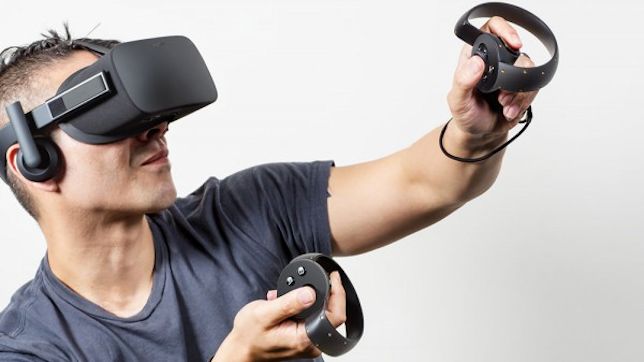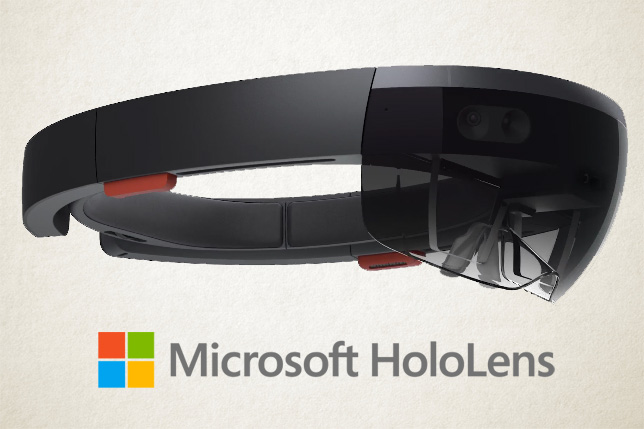Virtual Reality (VR) is a relatively new technology being ushered into the lives of first adopters, and soon the everyday gamer through the PlayStation VR. The smartphone most notably had the iPhone, which changed the way we thought of smartphones. Social media had the moment everyone joined Facebook, making us understand how influential social platforms would be in our lives. There is one for everything while VR is a great experience no one has done something for everyone to talk about it.
How I watch tech trends is by tuning into the local new station to see which tech trends made the prime time news, and how long they talked about it. While I may mock them and say they don’t understand what they’re saying, it’s highlighting how normals are taking an interest in technology. VR has been discussed on the local news, but they’re small segments talking about how early adopters are getting their first Rifts or Vives, and they’re not talking about how an ordinary consumer could get to experience VR. They’re touching on the features and how this technology could be amazing to use, even though they’ve never gotten a chance to see VR first hand.
I’ve tried on the HTC Vive, Oculus Rift, Gear VR, Google Cardboard, and they’re all amazing experiences. I always come away with a smile on my face, and I’m always looking at buying VR. However, I know setting up a desktop computer to use the Vive or Rift isn’t easy, and I’m not ready to drop $1,200 to $1,600 for something I’m not going to use on daily basis.
VR isn’t consumer ready
The closest and easiest way an ordinary consumer would experience VR is either through Google cardboard or Samsung’s Gear VR. The former uses an Android or iPhone to send users into a game that’s as immersive as you can get in a headset made out of cardboard. The Gear VR use a Samsung phone, and is being given away with purchases of the S7, but it’s not as capable as more robust and pricey units from Oculus. While the technology is from Oculus, it’s still limited to the power of the phone and the fact you’re still able to see pixels sometimes. They’re not what consumers are expecting from the experiences; they’re wanting to walk around and not feel like they’re looking through a screen.
The Vive and Rift both immerse you within worlds; you’ll forget that with one poorly timed hand swipe you could break some expensive things around you. They’re also more costly starting at $599 for the Oculus Rift and $699 for the HTC Vive. The Vive does come with touch controllers and light towers which allow you to free walk around a predetermined area. The Oculus supports motion controllers, but isn’t initially shipping with them, so you’ll be restricted to use a Xbox or PlayStation controller. The PlayStation VR is one of the easiest VR headsets to set up and use, but we won’t see the final version till October.
Let’s not forgot setup can be a hassle. The time it takes to get out and set everything up is twice or even more than what is needed to turn on a Xbox or Playstation. Another big hurdle is how the VR headsets are making us rethink how we use our computers. In the 90’s to early 2000’s we had computer rooms which our computers live, and then the mobile phone and laptop happened. We stopped thinking about where our computers live but where the next charge would come from. VR is thrusting us back to the 90’s where we need a dedicated room with a lot of space to move around. The Vive primarily, which offers the lighthouses; allowing you to move freely in a pre-designated space.
All in all, it isn’t’ easy to set up VR nor is it something you can use anywhere. You’ll need a whole room for moving around in a VR game.
When will we see a VR hit
It’s hard to say when we will see a VR hit because the two giants don’t need to do much more then refine their products. The Sulon Q is coming up which promises tether-free-all-in-one VR and AR, but their product sounds more like vaporware then something we’ll see in the next few months.
Before the iPhone, there were dozens of failed projects, and before Facebook there was Myspace. There is always a road of failed companies and projects, but with Oculus being owned by Facebook they likely won’t go anywhere. HTC does back not only the HTC Vive but also Valve, the company behind Steam – a modern PC gaming marketplace. Then Sony is working on the PlayStation VR, which means everyday gamers could get a glimpse of VR if they shell out the $399. They’ll likely have enough money and interest to continue to operate even if they don’t live up to consumers hype. Their massive support also means an innovative competitor will have a hard time capturing press and getting the hype around their device.
All of this means we likely won’t see a breakout VR device or feature that draws a mass market appeal.
Will VR last?
The question of if VR is going to last is tricky. The rise of augmented reality (AR), which overlays virtual objects in the real world looks more appealing to most people then transporting to a new foreign world in VR. The uses for AR are also more practical than VR, with the ability to use AR for training or countless other options. While VR likely won’t go the way that 3D TVs went, VR may become the groundwork for consumers using AR on a daily basis.
The Microsoft Hololens is one of the most recognizable AR headsets so far, with Google Glass being another one. While VR may become a smaller market, it likely becomes more common for gamers or someone wanting to train for flying or military experiences.
Overview
VR needs a pivotal product, game, or marketing campaign to bring the conversation to everyone and not just the gamers or techies. The Sulon Q could usher in a change towards VR and computing, but their lofty goals and claims may hinder the development of the VR/AR headset. The HTC Vive and Oculus Rift are already shipping, and most first thoughts are encouraging, but the games still are simple and set up is long. The PCs needed are expensive and overall everything isn’t easy for someone who enjoy games, but isn’t a techie.
Have you tried VR or thought about buying a gaming PC? Tell us in the comments below what you think about VR and if you’re going to buy a Playstation VR, HTC Vive, or Oculus Rift.


